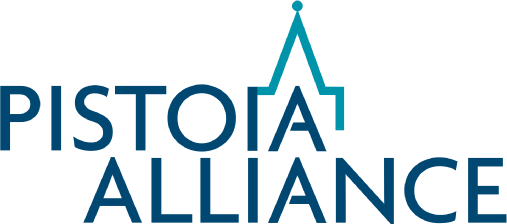Boston, May 5, 2021: The Pistoia Alliance, a global, not-for-profit alliance that advocates for greater collaboration in life sciences and healthcare R&D, today announced findings from a survey conducted at its spring conference. Respondents believe that emerging technologies including AI and blockchain will receive the highest level of investment in life sciences over the next 12 months (38%), followed by infectious diseases (32%), and oncology (14%). Respondents also predict that the biggest contributors to life science innovation post-pandemic will be startup biotech companies (35%), followed by startup tech companies (19%), and big pharma/biotech (18%).
“Now more than ever, research is occurring at the intersection between industries. Companies must embrace this trend and work together to tackle future challenges. We must advance quickly from disease treatment to disease cure, and finally to disease prevention,” commented Dr. Steve Arlington, President, the Pistoia Alliance. “Pooling resources and skills, and investing in emerging tech like AI and blockchain will enable us to better address future public health crises. Recently we have seen the benefits of collaboration during the development of vaccines, therapies and diagnostic tools to combat the COVID-19 pandemic. We must now apply this mindset to the multitude of other challenges we currently face.”
At the conference, Ryan Brinkman, CEO at Cytapex Bioinformatics, described the potential of utilizing citizen scientists through gamification of tasks. He discussed how gamers were crowdsourced to accelerate and improve flow cytometry data analysis for COVID-19, through games developer CCP and its multiplayer online game, EVE Online. This project shows how people power can be increased exponentially to augment the work of scientists. No prior biological knowledge was required so all gamers were able to participate and help spot patterns in data that might not be typically noticed. These results were also used to help train machine learning algorithms to continue the work on new data sets in the future.
Dr. Monika Lessl, Senior Vice President, Head of Corporate R&D and Social Innovation, Bayer, gave a keynote speech at the event. She discussed how businesses can build on collaboration to address the unprecedented challenges we currently face – from climate change to population growth and an aging society. “Collaboration across borders can help us to meet all challenges we face going forward. The Pistoia Alliance provides a great space to convene people across different scientific industries and from large pharmaceutical companies to small startups. Only by bringing people together to define key challenges and discuss potential solutions will be able to truly break down life science innovation barriers and continue advancing research.”
The Lab of the Future (LoTF) was also discussed at the conference. Almost three-quarters (72%) of survey respondents think the LoTF will be 50% virtual or more by 2030. This underlines the shift we are seeing to hybrid work across all industries. However, unlike fields like finance or professional services, life sciences needs to carve its own path to embrace the flexibility of remote work while advancing the lab environment. To replicate a laboratory at home is much more difficult than replicating a virtual office, so it is essential life science firms develop the kind of LoTF that keeps driving innovation forward and does not hinder scientific progress.
The conference took place from 20th to 23rd April 2021 and was attended by nearly 500 global life sciences professionals, with 200 respondents taking part in survey polls. For more information about the Pistoia Alliance, please visit pistoiaalliance.org.
—ENDS—
About the Pistoia Alliance
The Pistoia Alliance is a global, not-for-profit members’ organization made up of life science companies, technology, and service providers, publishers, and academic groups working to lower barriers to innovation in life science and healthcare R&D. It was conceived in 2007 and incorporated in 2009 by representatives of AstraZeneca, GSK, Novartis and Pfizer who met at a conference in Pistoia, Italy. Its projects transform R&D through pre-competitive collaboration. It overcomes common R&D obstacles by identifying the root causes, developing standards and best practices, sharing pre-competitive data and knowledge, and implementing technology pilots. There are currently over 150 member companies; members collaborate on projects that generate significant value for the worldwide life sciences R&D community, using The Pistoia Alliance’s proven framework for open innovation.
Media Contacts:
Spark Communications
+44 207 436 0420
pistoiaalliance@sparkcomms.co.uk
Tanya Randall
The Pistoia Alliance
+44 7887 811332
tanya.randall@pistoiaalliance.org
